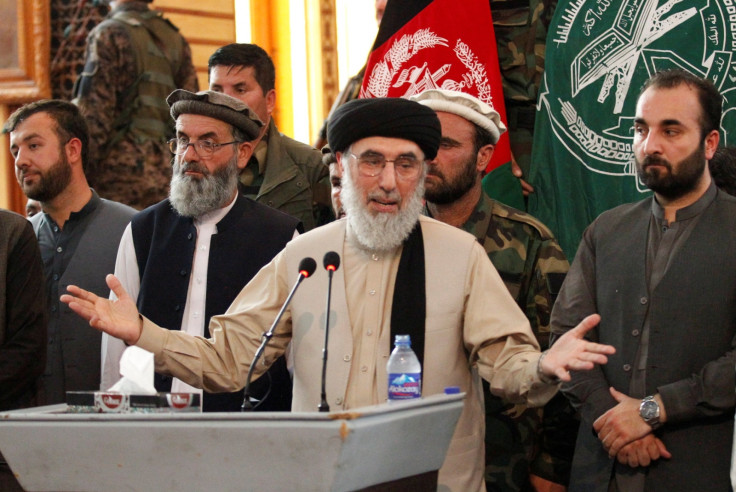Who is Gulbuddin Hekmatyar? Afghanistan's notorious warlord returns to Kabul
Hekmatyar's return comes eight months after signing a peace deal with the government.
Gulbuddin Hekmatyar, one of the most notorious warlords of Afghanistan, has returned to the capital city of Kabul on Thursday, 4 May. The arrival of the former prominent anti-Soviet commander came eight months after the signing of a peace deal with the government.
Hekmatyar, who travelled to the capital from the eastern city of Jalalabad amid tight security, is scheduled to meet President Ashraf Ghani later on Thursday. He is also expected to offer prayers on Friday at a prominent mosque.
Who is Hekmatyar and how the peace deal has helped him in his return?
Born in 1947 in Imam Sahib District of the Kunduz province, northern Afghanistan, Hekmatyar belongs to the Kharoti tribe of the Ghilzai Pashtun.
Considering him as a bright child, the tribal leader Gholam Serwar Nasher sent him to the Mahtab Qala military academy in 1968, but two years later he was expelled because of his political views.
The leader of the militant group Hezb-i-Islami also attended Kabul University's engineering department between 1970 and 1972. Though he did not complete his course, his followers still address him as "Engineer Hekmatyar".
The 69-year-old leader played a vital role during the bloody civil war of the 1990s when he was the prime minister between 1993 and 1994.
He again served as the country's premier in 1996, before the Taliban takeover of Kabul forced him to flee to Iran's capital Tehran, where he is said to have resided for almost six years. Later, the Iranian government, which once backed his militia, found him too unpredictable, unreliable and an unnecessary liability, and eventually refused to help him in any way.
After the fall of the Taliban in 2001, Hekmatyar went to Pakistan to lead his force to a new armed campaign against former president Hamid Karzai's government and the international coalition in Afghanistan.
In 2003, he was blacklisted following the 2001 US-led invasion of the country. However, in February, the United Nations Security Council removed his name from the list of most wanted Isis and al-Qaeda terrorists as part of a peace deal that Hekmatyar and his militant group, Hezb-i-Islami, signed with the Afghanistan government in September 2016.

He signed the deal with Afghan President Ghani via a pre-recorded video from an undisclosed location.
Under the accord, the government promised an official pardon to the militant group's associates and that the group would be accepted as a political party involved in major political decisions, although it would not join the government.
What his return means for Afghanistan?
The Hezb-i-Islami leader is responsible for thousands of deaths during the bloody civil war of the 1990s, which had led the locals to welcome the emergence of the Taliban. Though he has urged for peace in his first public speech on 29 April, his return is not seen as a positive sign by many.
It is being feared that his return could induce political uncertainty in the country, which is already facing insurgency from Islamists militants groups like the Taliban and Isis. Hekmatyar is also seen as a potential contender to President Ghani and Chief Executive Abdullah Abdullah, who have governed the country as part of a shaky, US-brokered power-sharing agreement since the disputed elections of 2014.
Human Rights Watch researcher Patricia said that Hekmatyar's return "will compound the culture of impunity" and also called the deal, which was criticised for the pardon it gave Hekmatyar and his fighters, an "affront" to victims of violence.
© Copyright IBTimes 2025. All rights reserved.





















